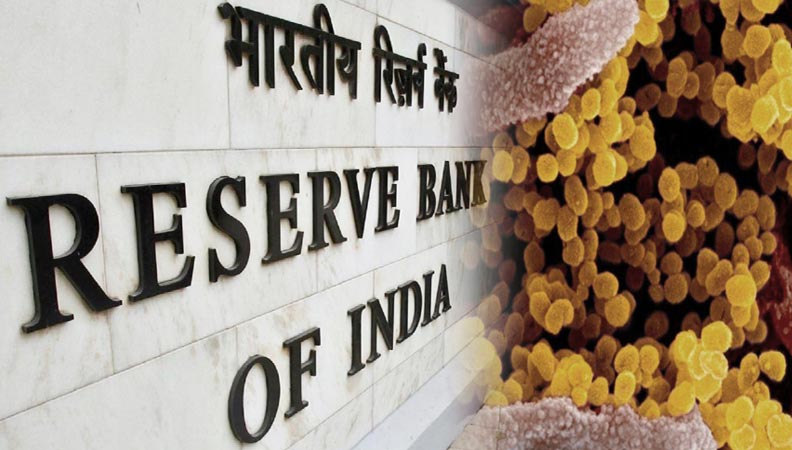
Much needed COVID-19 Financial Relief Package
March 27, 2020
The Government of India, under the leadership of Prime Minister Shri Narendra Modi, has risen to the occasion and deserves all-round applause.
The announcements made by Finance Minister Mrs. Nirmala Sitharaman followed by the measures announced by RBI Governor Mr. Shaktikanta Das today, will instil people’s confidence and boost the faith of the business community in the Indian economy.

The general stress in the Economic Activity in the country was accentuated by the tremendous stress due to the COVID 19 lockdown.
There was an immediate need to take care of the vulnerable sections in the society and our Finance Minister has taken care of that in an extremely positive manner. Food and Life being the essentials and vitals for any society the relief was announced to provide a safety net for those who were hit the hardest. While questions were being raised about the other relief measures that were anticipated by the nation, the RBI stepped in only a day after the Government’s Relief announcement.
The COVID 19 regulation package announced by the RBI today will ensure continuous liquidity in the economy, reduce the cost of funds and would also bring relief to millions of citizens to tide over this difficult time. There were critical demands such as repayment of loans, NPA classification, working capital for immediate needs including zero salary disruptions, etc., all of which were adequately addressed by the RBI.
Injecting a substantial amount of Rs 3.74 lakh crores through various instruments is a path-breaking and highly admirable step to ensure liquidity in the system. We must understand that the RBI treads on a delicate path where it should not create extreme stress on the banking and financial system and yet provide the immediate stimulus. It is indeed a Critical balancing effort.
A summary of the measures taken by the RBI:
- Targeted Long Term Repo:
Auction of Targeted Long Term Repo (TLTR) operations of 3-year tenure for total amount Rs 1,00,000 crore at a floating rate. Liquidity availed under the scheme by banks is to be deployed in investment grade corporate bonds, commercial paper, and non-convertible debentures over and above the outstanding level of their investments in these bonds as on March 27, 2020. Banks shall be required to acquire up to fifty percent of their incremental holdings of eligible instruments from primary market issuances and the remaining fifty percent from the secondary market, including from mutual funds and non-banking finance companies. Investments made by banks under this facility will be classified as held to maturity (HTM) even in excess of 25 percent of total investment permitted to be included in the HTM portfolio. Exposures under this facility will also not be reckoned under the large exposure framework. - The Moratorium of Term Loans:
All commercial banks (including regional rural banks, small finance banks, and local area banks), co-operative banks, all-India Financial Institutions, and NBFCs (including housing finance companies and micro-finance institutions) (“lending institutions”) are being permitted to allow a moratorium of three months on payment of installments in respect of all term loans outstanding as on March 1, 2020. Accordingly, the repayment schedule and all subsequent due dates, as also the tenure for such loans, maybe shifted across the board by three months. This entails a huge relief on EMIs and has proven to be a much-needed step. All commercial, regional, rural, NBFCs, and small finance banks are being permitted to allow a 3-month moratorium on payment of installments in respect of all term loan EMIs outstanding on March 31. There will be no hit on the Credit Score nor will there be any NPA. This will be a great relief for MSMEs, self-employed, salaried class, etc. as the relief extends to housing loans, vehicle loans, and even personal loans. - Targeted Long Term Repo:
Auction of Targeted Long Term Repo (TLTR) operations of 3-year tenure for total amount Rs 1,00,000 crore at a floating rate. Liquidity availed under the scheme by banks is to be deployed in investment grade corporate bonds, commercial paper, and non-convertible debentures over and above the outstanding level of their investments in these bonds as on March 27, 2020. Banks shall be required to acquire up to fifty percent of their incremental holdings of eligible instruments from primary market issuances and the remaining fifty percent from the secondary market, including from mutual funds and non-banking finance companies. Investments made by banks under this facility will be classified as held to maturity (HTM) even in excess of 25 percent of total investment permitted to be included in the HTM portfolio. Exposures under this facility will also not be reckoned under the large exposure framework. - Reduction in Cash Reserve Ration (CRR):
As a one-time measure to help banks tide over the disruption caused by COVID-19, it has been decided to reduce the cash reserve ratio (CRR) of all banks by 100 basis points to 3.0 percent of net demand and time liabilities (NDTL) with effect from the reporting fortnight beginning March 28, 2020. This reduction in the CRR would release primary liquidity of about ₹ 1,37,000 crore uniformly across the banking system in proportion to liabilities of constituents rather than in relation to holdings of excess SLR. This dispensation will be available for a period of one year ending on March 26, 2021. - Marginal Standing Facility:
Under the marginal standing facility (MSF), banks can borrow overnight at their discretion by dipping up to 2 percent into the Statutory Liquidity Ratio (SLR). In view of the exceptionally high volatility in domestic financial markets which bring in phases of liquidity stress and to provide comfort to the banking system, it has been decided to increase the limit of 2 percent to 3 percent with immediate effect. This measure will be applicable up to June 30, 2020. This is intended to provide comfort to the banking system by allowing it to avail an additional ₹ 1,37,000 crore of liquidity under the LAF window in times of stress at the reduced MSF rate announced in the MPC’s resolution. - Deferment of Interest on Working Capital Facility:
In respect of working capital facilities sanctioned in the form of cash credit/overdraft, lending institutions are being permitted to allow a deferment of three months on payment of interest in respect of all such facilities outstanding as on March 1, 2020. The accumulated interest for the period will be paid after the expiry of the deferment period. - Ease of Working Capital Financing:
In respect of working capital facilities sanctioned in the form of cash credit/overdraft, lending institutions may recalculate drawing power by reducing margins and/or by reassessing the working capital cycle for the borrowers. Such changes in credit terms permitted to the borrowers to specifically tide over the economic fallout from COVID-19 will not be treated as concessions granted due to financial difficulties of the borrower, and consequently, will not result in asset classification downgrade.
While most Business owners heartily welcomed the announcement today, simultaneously they take a step forward to strategize for the future hoping that tough times won’t last forever. The expectation is that the Banks will pass on these benefits to end users to uplift the appetite among India Inc to notch up the economic revival.

An esteemed member of the Institute of Chartered Accounts of India, Ashish Sarin, is the Chief Executive Officer, and one of the main founders of the AlphaCorp Development Private Limited. A real brand innovator, he has been pivotal in shaping Alpha Corp’s Business Strategy and financial architecture, establishing requisite credit lines and building its revenue base. His focus lies in implementing the Board's mandate to continuously enhance the company's long-standing reputation of being professional, ethical, transparent and oriented towards deliverability.

